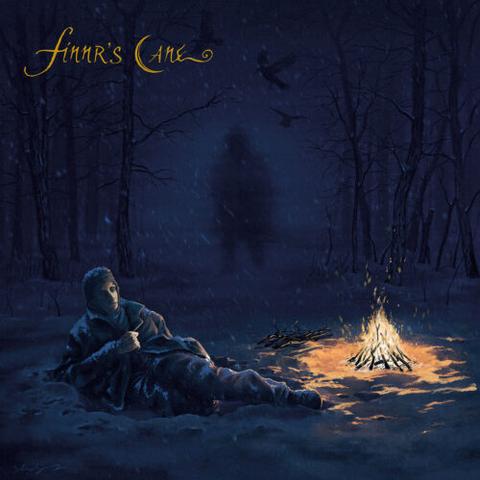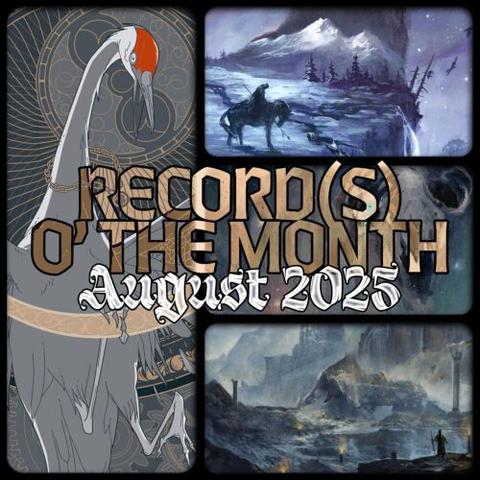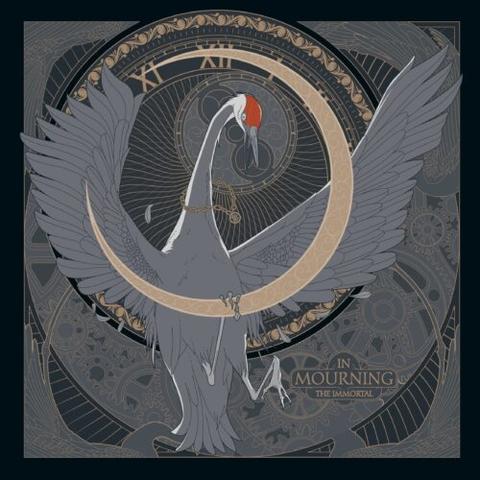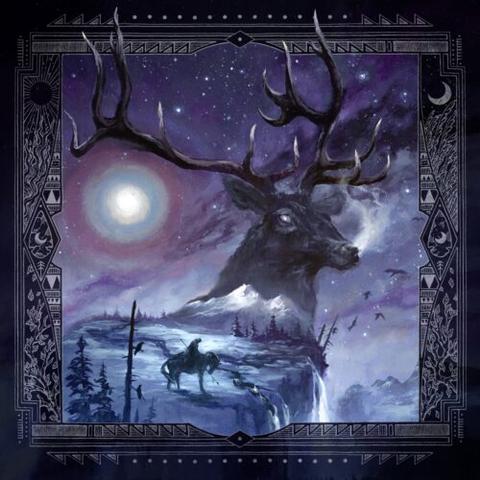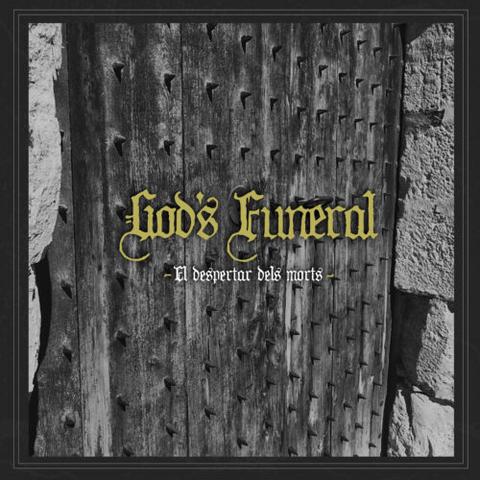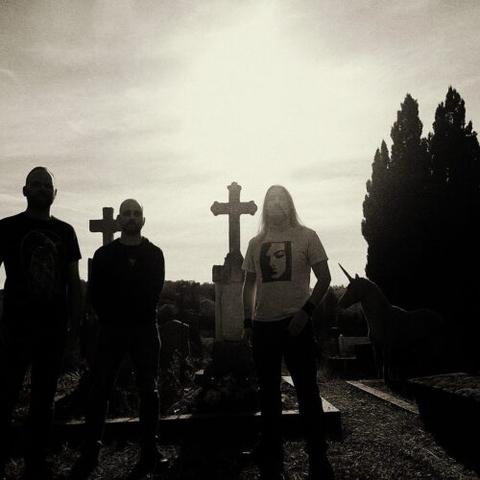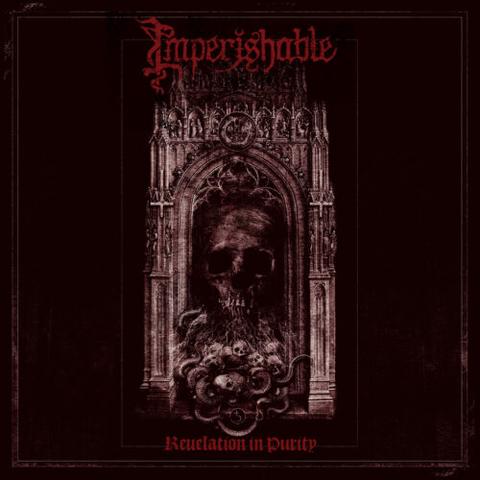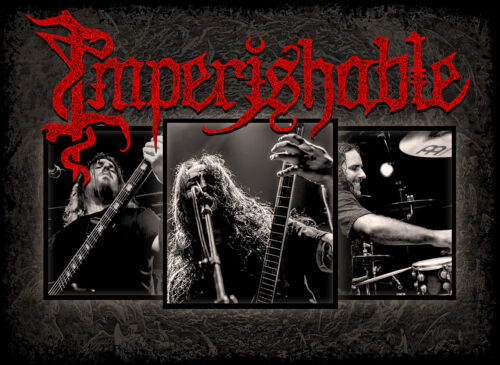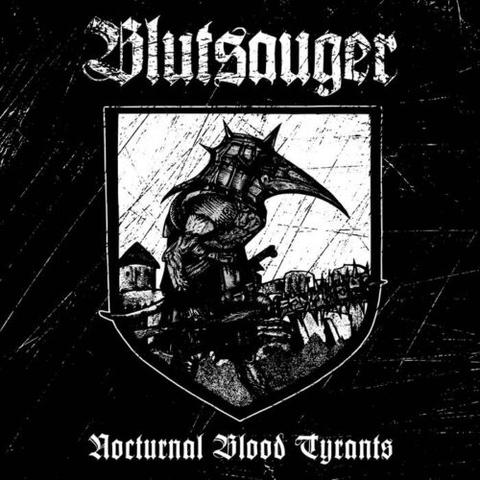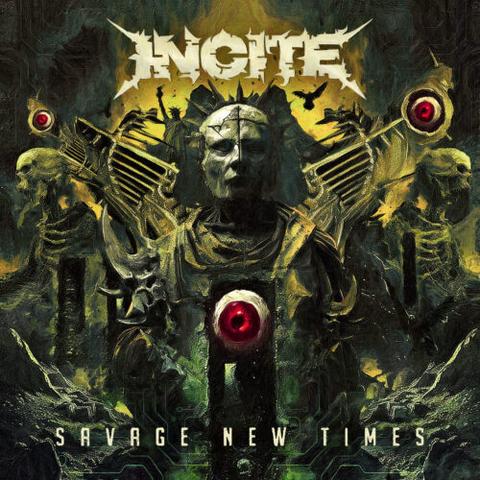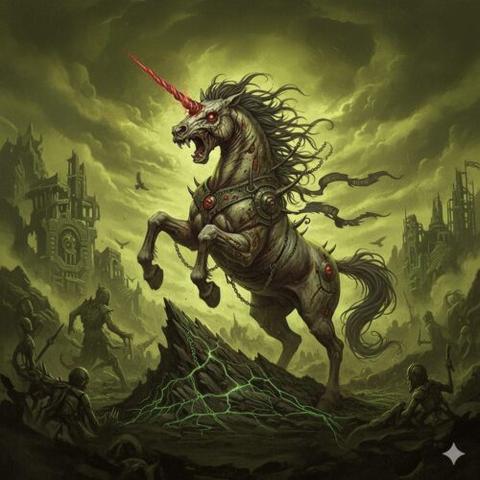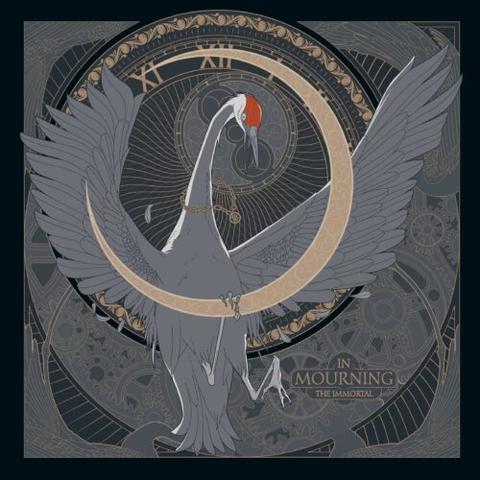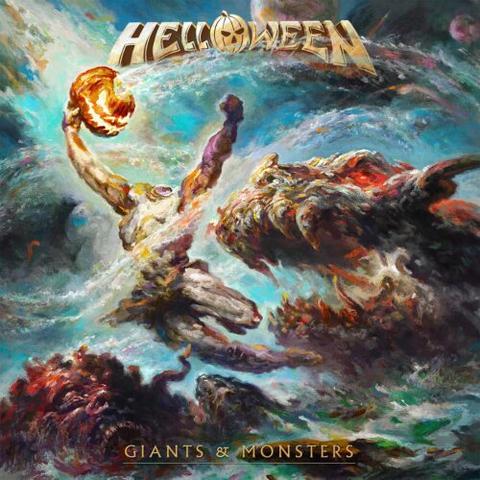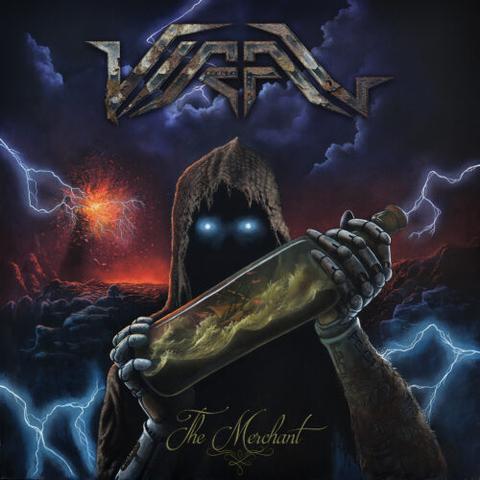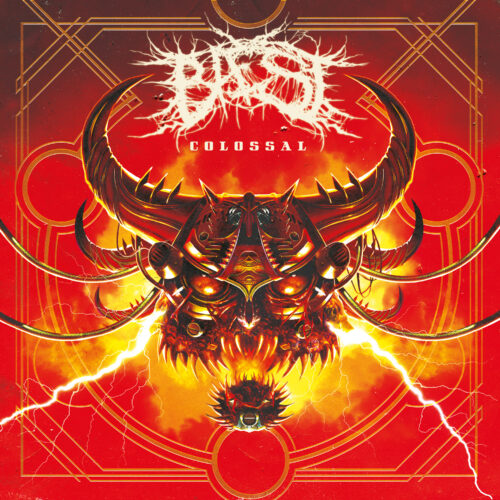Finnr’s Cane – Finnr’s Cane Review
By Killjoy
Finnr is an Old Norse name that loosely translates to “wanderer” in English. Whether or not this was the inspiration for Finnr’s Cane, it’s an apt moniker for an atmospheric black metal act. Hailing from Sudbury, Ontario, Canada, this studio-only group has three prior albums under its belt, the last of which, Elegy, won the overall approval of Ferrous Beuller in 2018. Until now, Finnr’s Cane was a trio consisting of guitarist/vocalist The Bard,1 drummer The Peasant, and cellist The Slave. At some point, The Slave either escaped or was set free, as she no longer appears in the lineup. And now, Finnr’s Cane seems to signal a new era with the release of self-titled album number four.
In terms of overall atmosphere, Finnr’s Cane is more like gray metal than black metal. Its dreary demeanor hews closer to contemplative post-black than the blackened doom metal of Elegy. If the fellow on the album artwork had been so inclined to place a cooking pot over his campfire to make a stew, he might have tossed in melancholic Cascadian black metal ingredients such as Alda, Skagos, and, of course, Agalloch. For seasoning, he might also add a pinch of older Falls of Rauros’ guitarwork and the winking keyboards of Eldamar. Though the release date of Finnr’s Cane doesn’t quite coincide with the autumn temperatures that I long for, it’s been refreshing to listen to throughout August as it mentally transports me to a colder place.
Unfortunately, much of this setting is drab and desolate beyond the typical genre aesthetics. The vocals usually take the form of flat intonations or dispassionate spoken word, sapping the music of energy and emotive impact. Additionally, the instrumentation, while solid, feels like it’s missing a crucial element. Finnr’s Cane has historically distinguished itself by the usage of a cello in place of a bass guitar, and Ferrous acknowledged The Slave’s subtle yet outsized hand in the successes of Elegy. Now, her absence feels like the removal of a linchpin, rendering Finnr’s Cane more nondescript. Granted, the cello is not gone completely—whether taken over by The Bard or previously recorded by The Slave. Its blazing undertones warm up “Awaken the Sleeping Forest” and “The Everwinter Grey” and afford much-appreciated bright spots in the blizzard.
Nevertheless, when the right mood strikes, the winter storm of Finnr’s Cane can be hypnotic and immersive. “In Shadows” uses eerie keyboard sounds and delicate guitar plucks to great effect. The same thick, plucking guitar tone returns with greater enthusiasm and intricacy in the final two tracks, “The Spell of the Change of Seasons” and “Harvest.” However, other promising moments feel awkwardly tacked onto their respective songs. The outros of “Twilight Glow” and “Harvest” abruptly accelerate in tempo and urgency for a few seconds and then end just as quickly, feeling more like a tease than a natural culmination of what came before. This could be due to the fact that The Bard and The Peasant conceive their music through intuitive improvisation but in any case, Finnr’s Cane is mainly concerned with conveying feeling over coherence.
It saddens me to write that Finnr’s Cane mostly left me cold, and not just in its intended way. Even though I was not yet familiar with Finnr’s Cane’s back catalog, I immediately couldn’t shake the feeling that something was missing. Now having spent time with prior records, I can’t say Finnr’s Cane is wildly different from them, but it seems like an intangible spark was lost sometime between now and Elegy. Maybe it’s just the diminished cello presence but the songwriting also sounds more listless to my ears. I can appreciate many of the disparate components of Finnr’s Cane when I listen in the right state of mind, and other atmoblack fans may derive more enjoyment than I did. For those more willing to become lost in its atmosphere, Finnr’s Cane might just be your companion in the coming months.
Rating: 2.5/5.0
DR: 7 | Format Reviewed: 320 kbps mp3
Label: Nordvis Produktion
Websites: finnrs-cane.bandcamp.com | facebook.com/finnrscaneband
Releases Worldwide: August 29th, 2025
#25 #2025 #Agalloch #Alda #AtmosphericBlackMetal #Aug25 #BlackMetal #CanadianMetal #Eldamar #FallsOfRauros #FinnrSCane #FractalGenerator #NordvisProduktion #PostBlackMetal #Review #Reviews #Skagos
